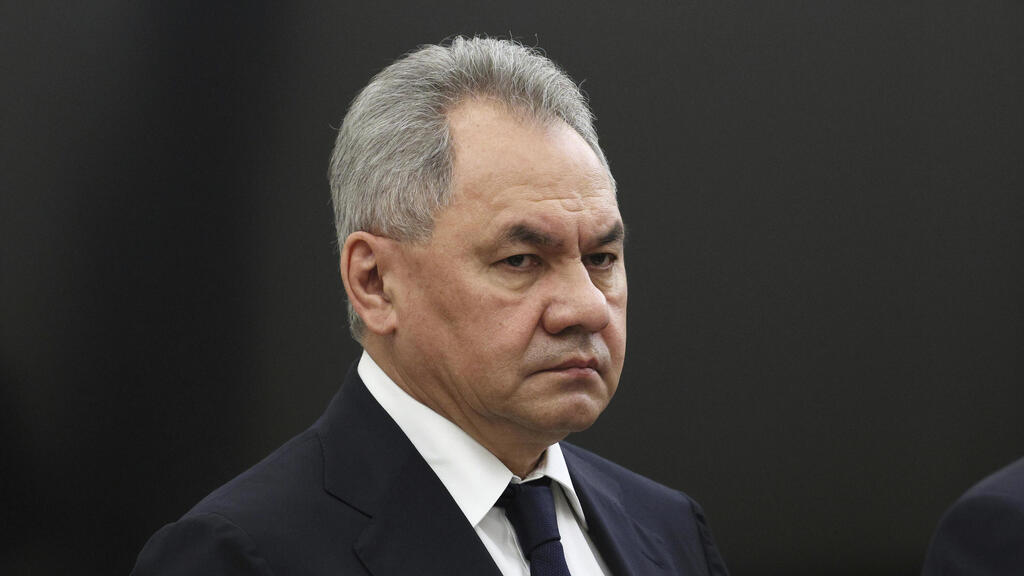Getting your Trinity Audio player ready...
Five days after the assassination of Ismail Haniyeh, Russian National Security Council Secretary Sergey Shoigu arrived in Tehran for a series of meetings.
According to protocol, Shoigu first met with Iran's new president, Massoud Pezhkian, before proceeding to closed-door sessions with Admiral Ali Akbar Ahmadian, a high-ranking officer in the Iranian Revolutionary Guard Corps, and other undisclosed security officials.
The purpose of his visit was clear: to caution his Iranian counterparts that retaliation for Haniyeh's assassination should not escalate into a situation that could ignite the entire Middle East.
Iran attempted, unsuccessfully, to portray Shoigu's visit as a "routine" diplomatic engagement, part of a series of meetings following the new Iranian president's inauguration. However, Russia quickly clarified that Shoigu was delivering a strong and unequivocal message to Iran: any response to Haniyeh's killing must remain proportionate.
Russian President Vladimir Putin, who deliberately refrained from commenting on the assassination and avoided criticizing Israel, sent Shoigu with a stern warning: the retaliation must not spiral into a regional war.
Notably, Egypt, Saudi Arabia, and the UAE remained silent on the matter, while Jordan took a different approach. A day before Shoigu’s arrival, Jordanian Foreign Minister Ayman Safadi landed in Tehran. It was the first visit by a high-ranking Jordanian official to Iran in over 20 years. Safadi's message to Iran’s de facto Foreign Minister, Ali Bagheri Kani, was direct: "Remember that Jordan is a neutral state. Do not drag us into your conflicts with Israel, as you did two months ago." In April, when Iran launched 300 missiles and drones at Israel, some had entered Jordanian airspace.
Just hours after the explosion that killed Haniyeh and his Palestinian bodyguard at an official guest house in Tehran, Supreme Leader Khamenei convened the first of several emergency meetings. The heads of all major branches—the IRGC, the Quds Force, the Air Force Commander, and the two intelligence chiefs—were summoned to propose a "severe response." These discussions lasted four days, with a different group required to update Khamenei and his senior advisors each day.
Meanwhile, the "envoys" began to arrive, whom Hezbollah leader Hassan Nasrallah sarcastically referred to as "the idiotic messengers" in a recent speech. Nasrallah essentially confirmed reports in the American media about a series of emissaries heading to Beirut for meetings with figures linked to Hezbollah. Two of these envoys reportedly delivered messages to Iran, cautioning against a regional war, as Israel is prepared and ready to retaliate. According to sources in Beirut, the envoys "suggested" targeting empty buildings within Israel or abroad, to minimize casualties. The Iranians, however, insisted on pointing out that in both attacks—those that killed Fuad Shukr in Beirut and Ismail Haniyeh in Tehran—civilians were reportedly involved.
At this stage, it is unclear whether Iran is planning a singular retaliatory strike against Israel or if it is already coordinating a covert operation with its proxies: Hezbollah, the Houthis in Yemen (who have expressed their desire to join the "revenge" plan), and the Islamic Jihad and Hamas, which have also vowed to launch precise missile strikes on Israel according to a timeline set by Tehran. While Iran is clearly gathering information and weighing its options, the final decision, as always, rests with Supreme Leader Khamenei.
Interestingly, Washington and Moscow share a similar stance on Iran’s "operation." Both are making extensive efforts to warn the Iranians, arguing that in the event of an escalated response, "Bibi could very well lose it." Tehran received a reminder this week of Netanyahu’s "Iran syndrome." According to the intelligence on Khamenei’s desk, Netanyahu now has two main objectives: to continue the war in Gaza until Yahya Sinwar is eliminated and to deliver a harsh and decisive response should Iran's retaliation exceed "proportional" limits against Israel.




